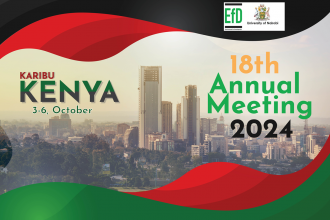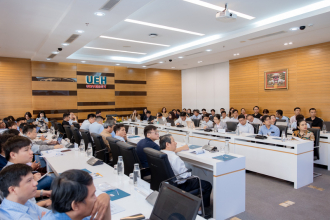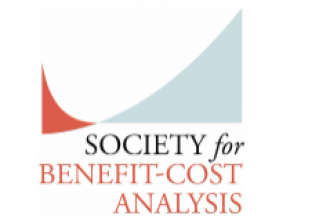
EfD's Annual Meeting 2024 - Call for papers!
The 18th Annual Meeting of the Environment for Development (EfD) Initiative is organized by EfD-Kenya, the Department of Economics, and Development Studies, the University of Nairobi, and the EfD…

The 18th Annual Meeting of the Environment for Development (EfD) Initiative is organized by EfD-Kenya, the Department of Economics, and Development Studies, the University of Nairobi, and the EfD…

The next EEU seminar will be held now on Monday the 15th of April at 12:10 – 13:15 in B44. The seminar will be held by Claes EK. Claes is a senior lecturer at our department and he will present on the…

The next EEU seminar will be held now on Monday the 8th of April at 12:10 – 13:15 in B44 or Zoom The seminar will be held by Mitesh Kataria. Mitesh is a senior lecturer at the department of economics…
Mark your calendars for November 6-8 as we bring together thought leaders, industry experts, and visionaries from around the globe to explore the future of business education, sustainability, and…

EfD Vietnam recently played a key role in a dialogue on carbon markets in Ho Chi Minh City, Vietnam's largest economic hub. The team, along with local stakeholders, prepared a policy report and held a…

Felipe Vásquez , a professor at Universidad del Desarrollo (UDD) in Chile and an EfD fellow, participated in an international seminar in Chile along with other researchers from Europe, Australia, and…

EfD Ghana arranged a communication training session for researchers, recognizing their role not only as contributors of valuable evidence-based insights but also as key stakeholders in disseminating…

European Conference 2024 The 2024 European Conference of the Society for Benefit-Cost Analysis (SBCA) will take place at the University of Warsaw, Poland, on September 19 and 20, 2024. Extended…